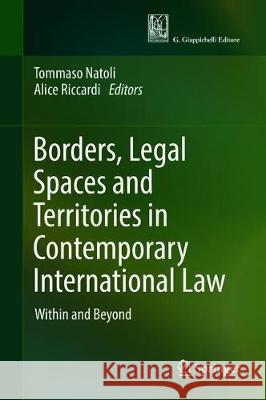Borders, Legal Spaces and Territories in Contemporary International Law: Within and Beyond » książka
topmenu
Borders, Legal Spaces and Territories in Contemporary International Law: Within and Beyond
ISBN-13: 9783030209285 / Angielski / Twarda / 2019 / 266 str.
Borders, Legal Spaces and Territories in Contemporary International Law: Within and Beyond
ISBN-13: 9783030209285 / Angielski / Twarda / 2019 / 266 str.
cena 642,56
(netto: 611,96 VAT: 5%)
Najniższa cena z 30 dni: 578,30
(netto: 611,96 VAT: 5%)
Najniższa cena z 30 dni: 578,30
Termin realizacji zamówienia:
ok. 22 dni roboczych.
ok. 22 dni roboczych.
Darmowa dostawa!
Kategorie:
Kategorie BISAC:
Wydawca:
Springer
Język:
Angielski
ISBN-13:
9783030209285
Rok wydania:
2019
Wydanie:
2019
Ilość stron:
266
Waga:
0.56 kg
Wymiary:
23.39 x 15.6 x 1.75
Oprawa:
Twarda
Wolumenów:
01
Dodatkowe informacje:
Wydanie ilustrowane











